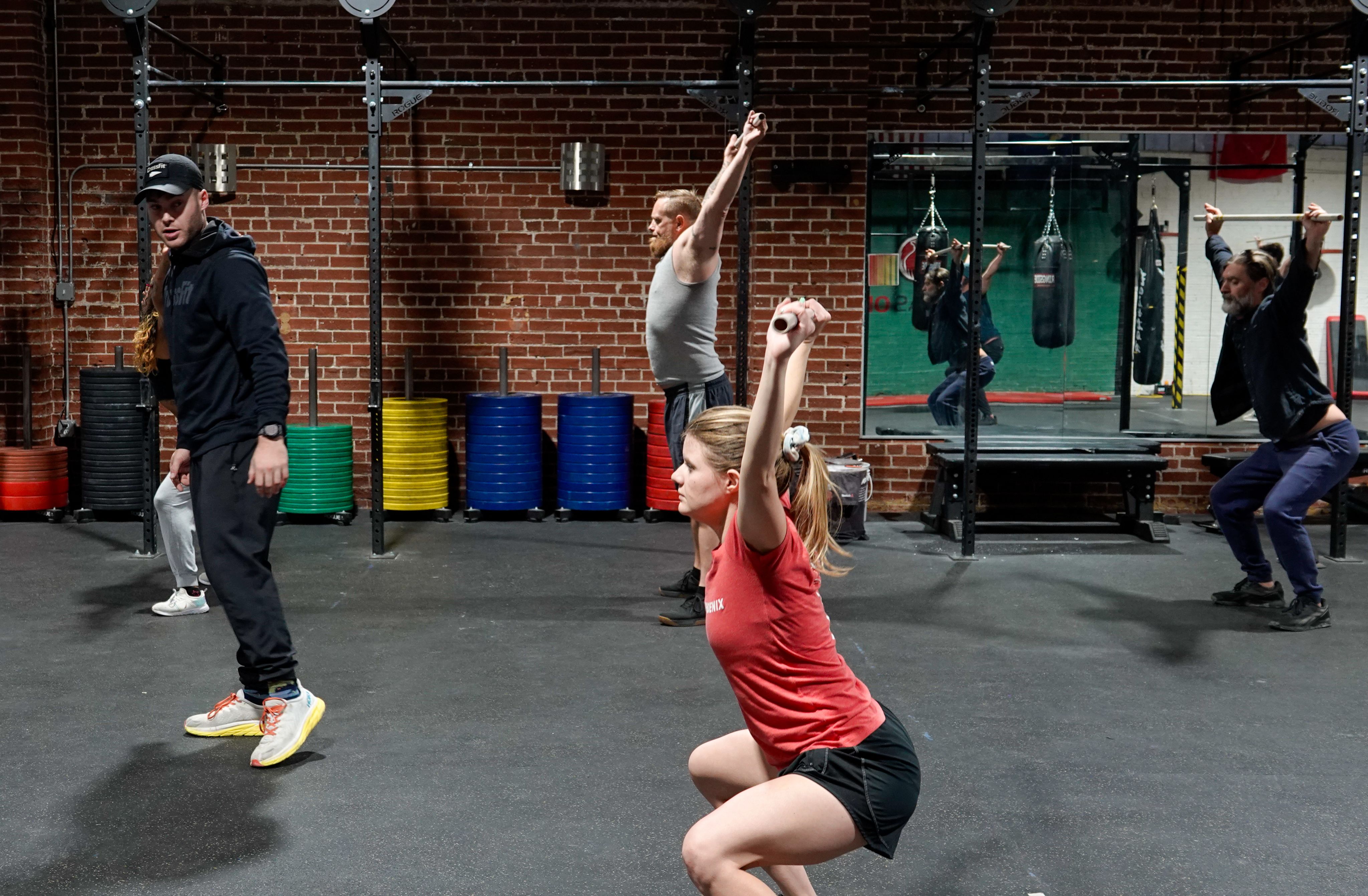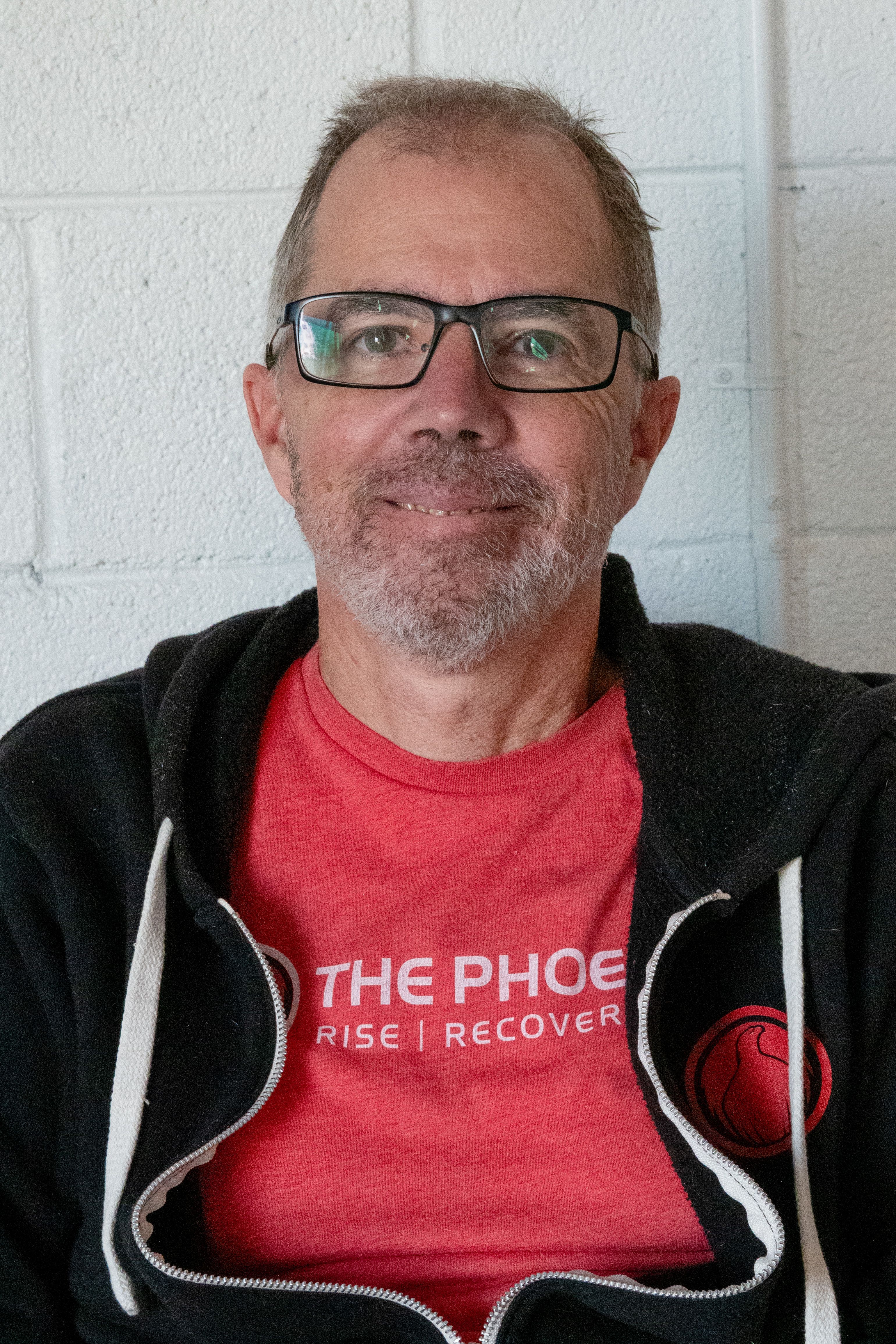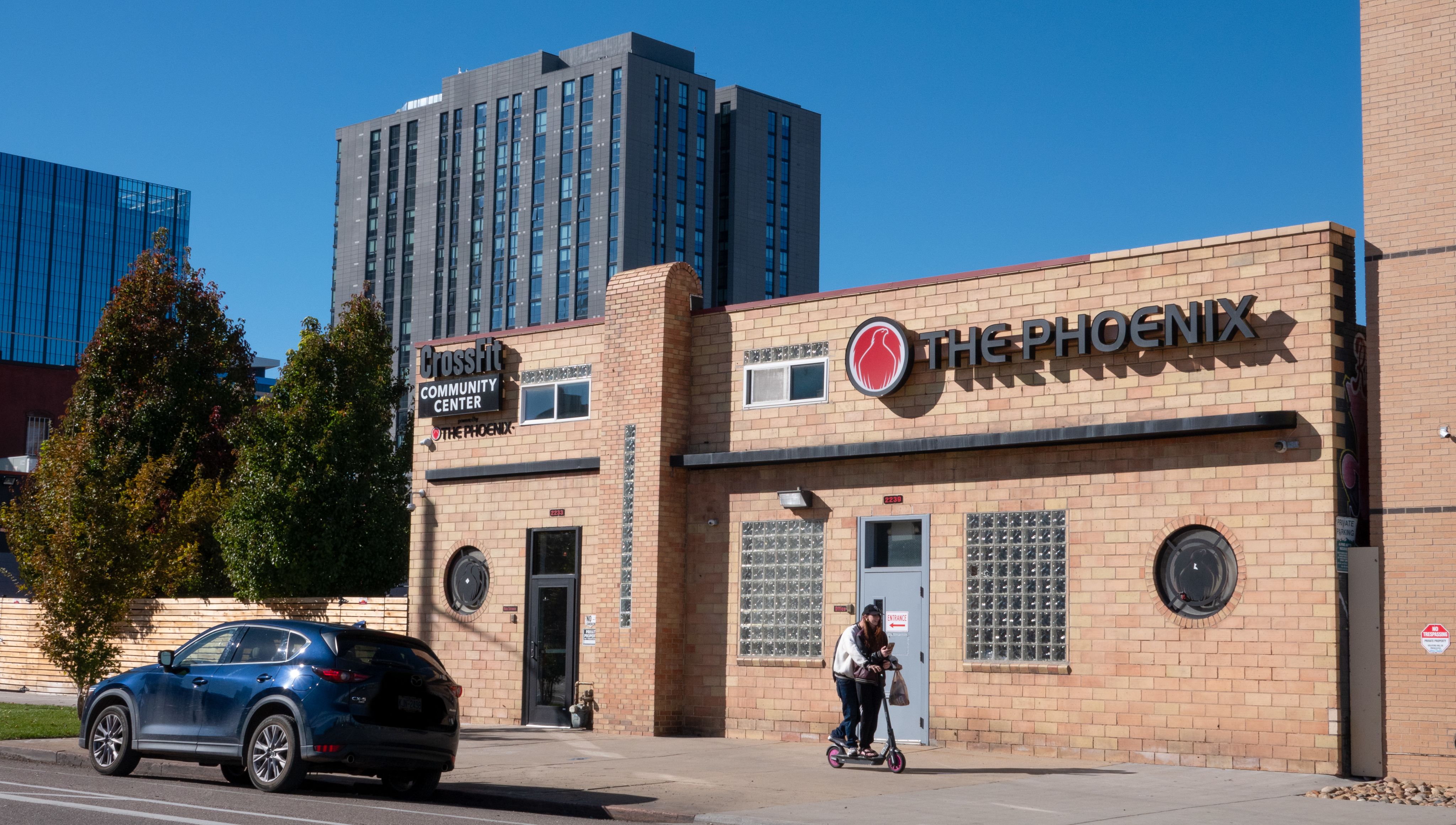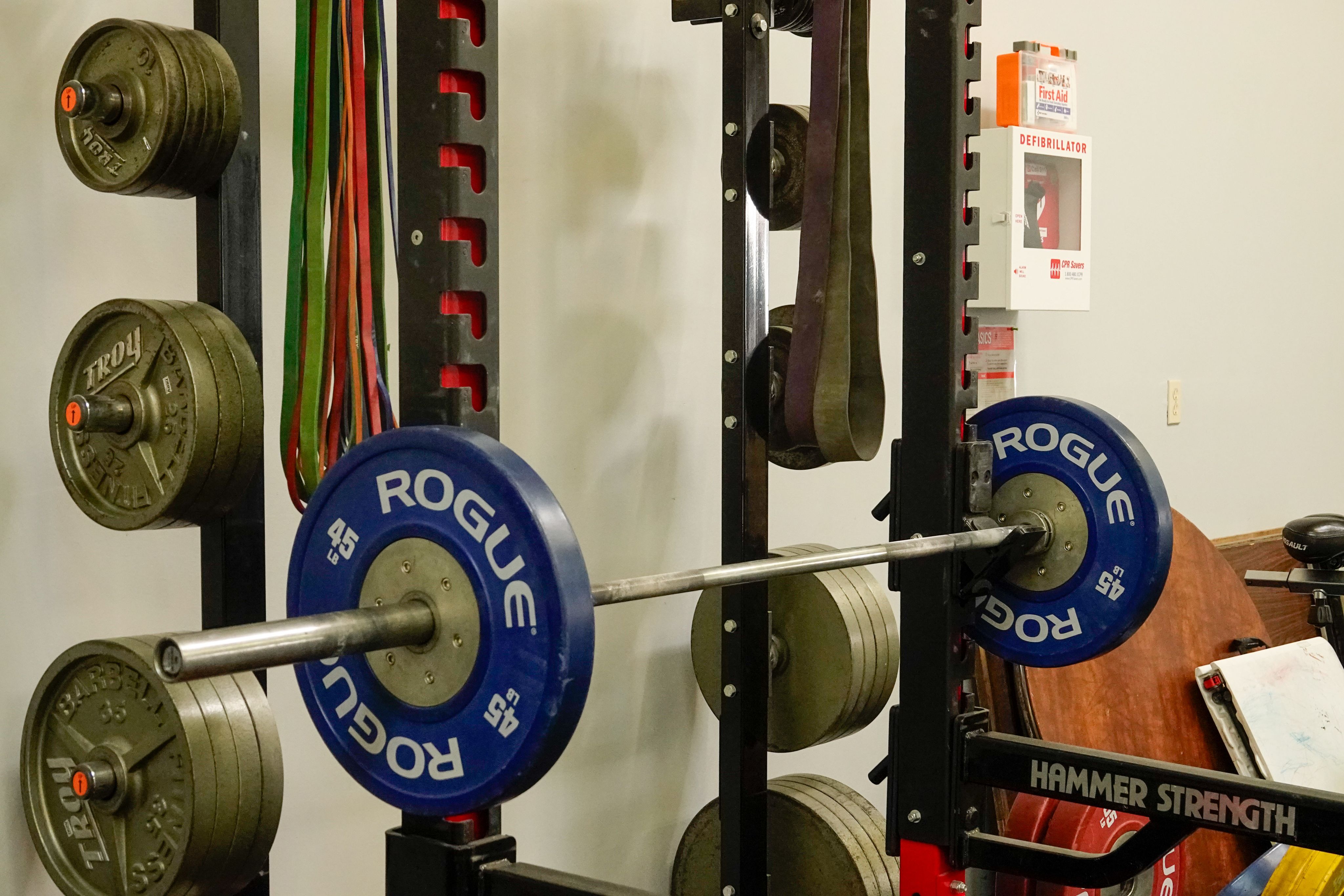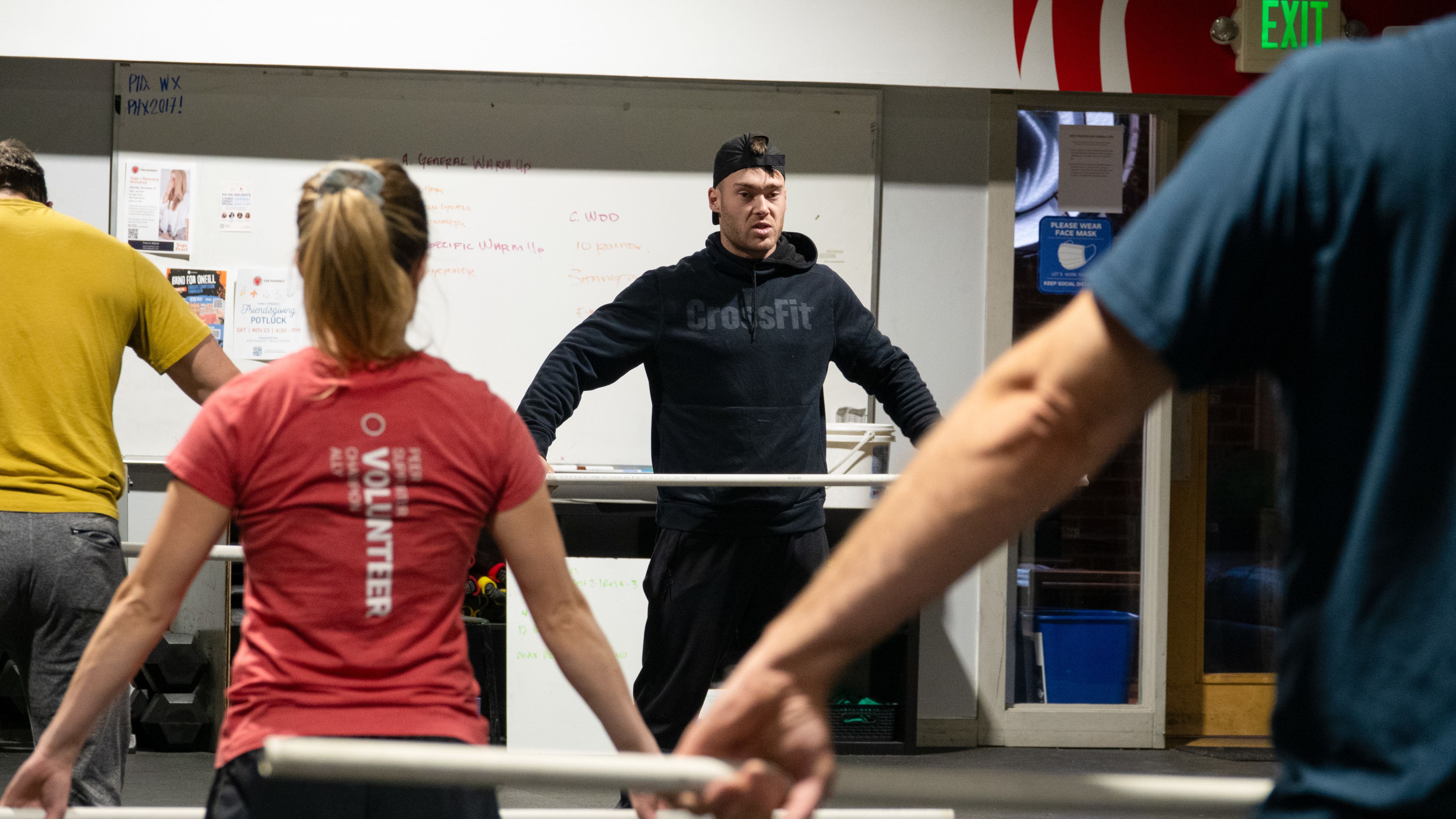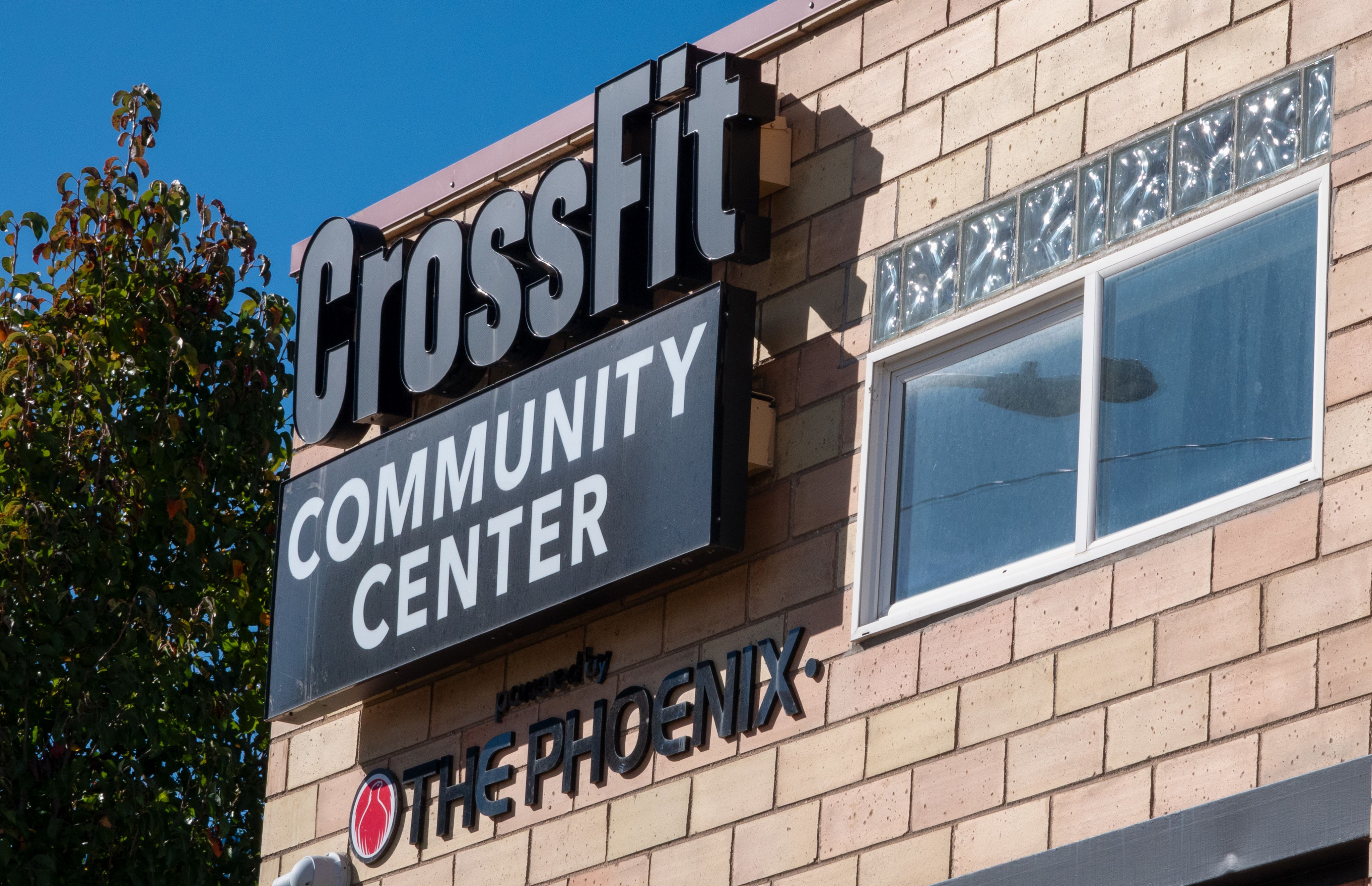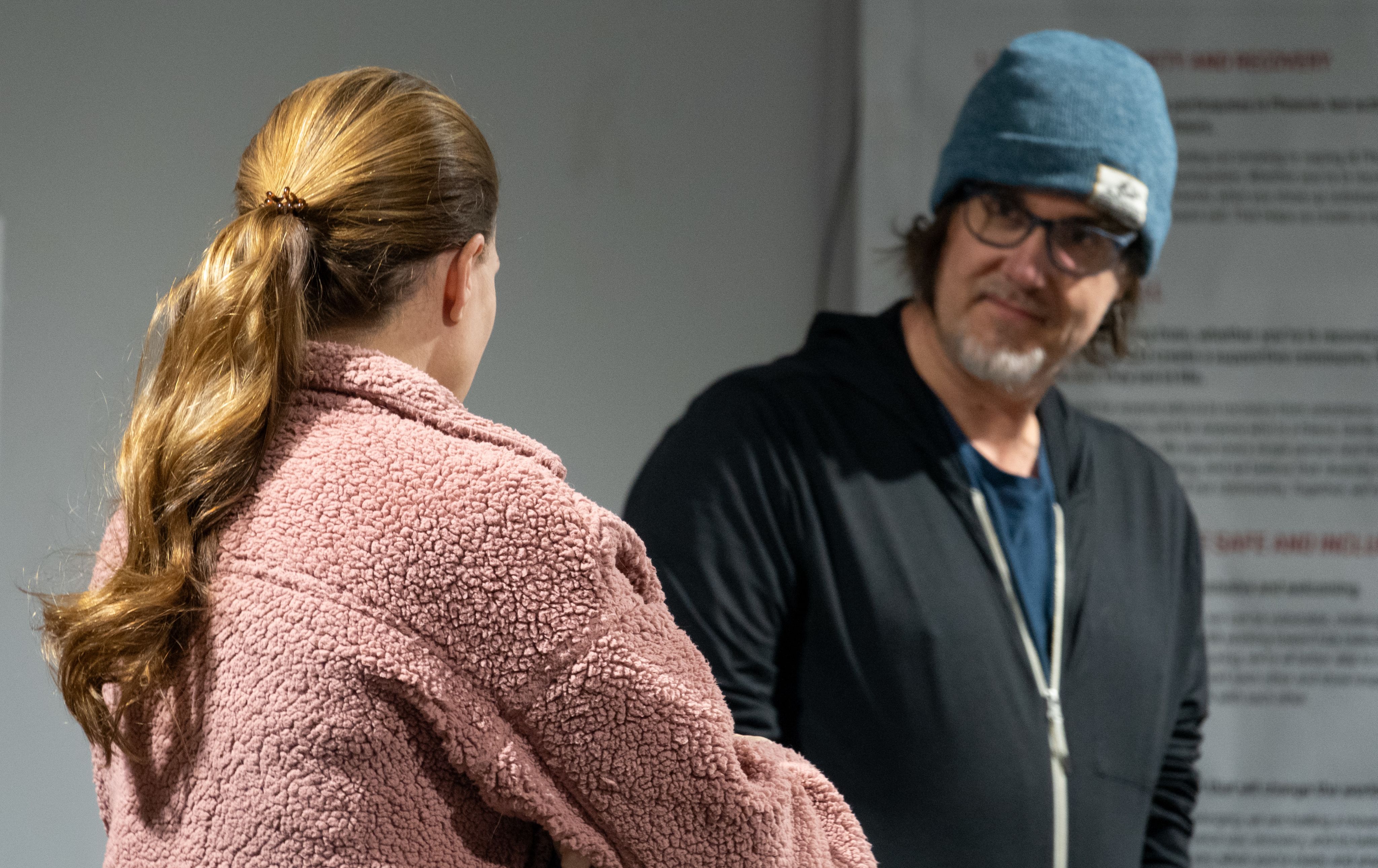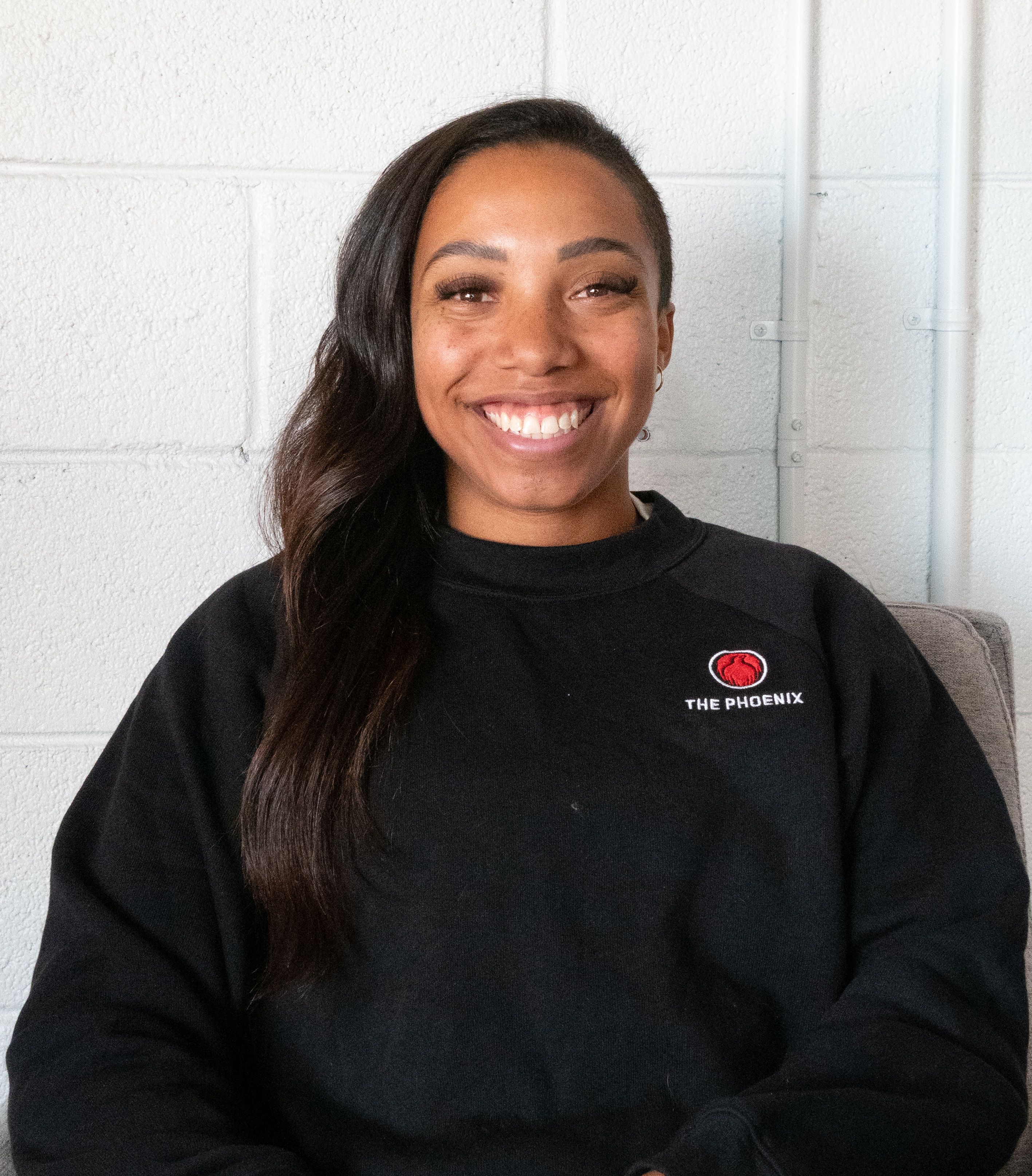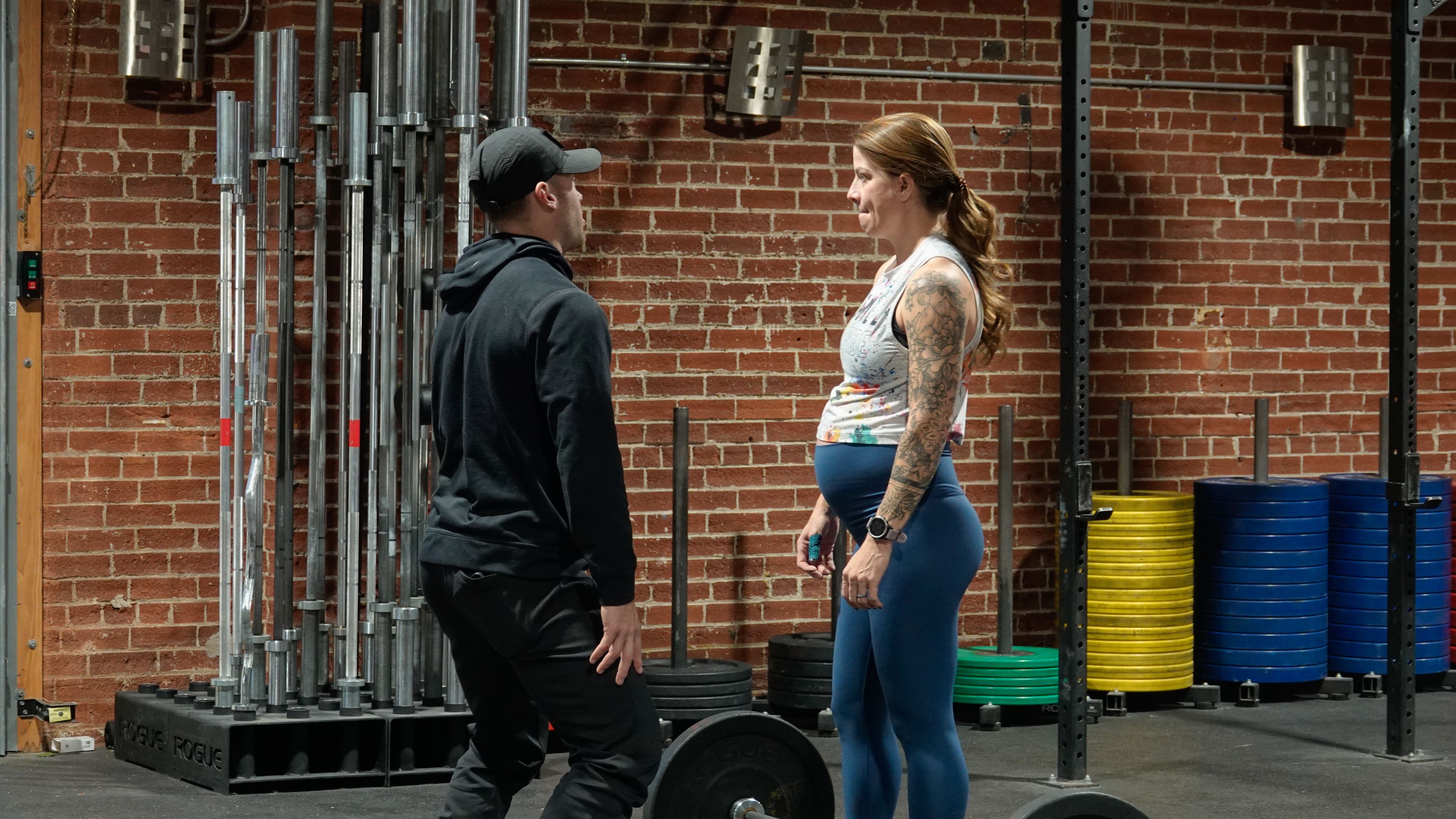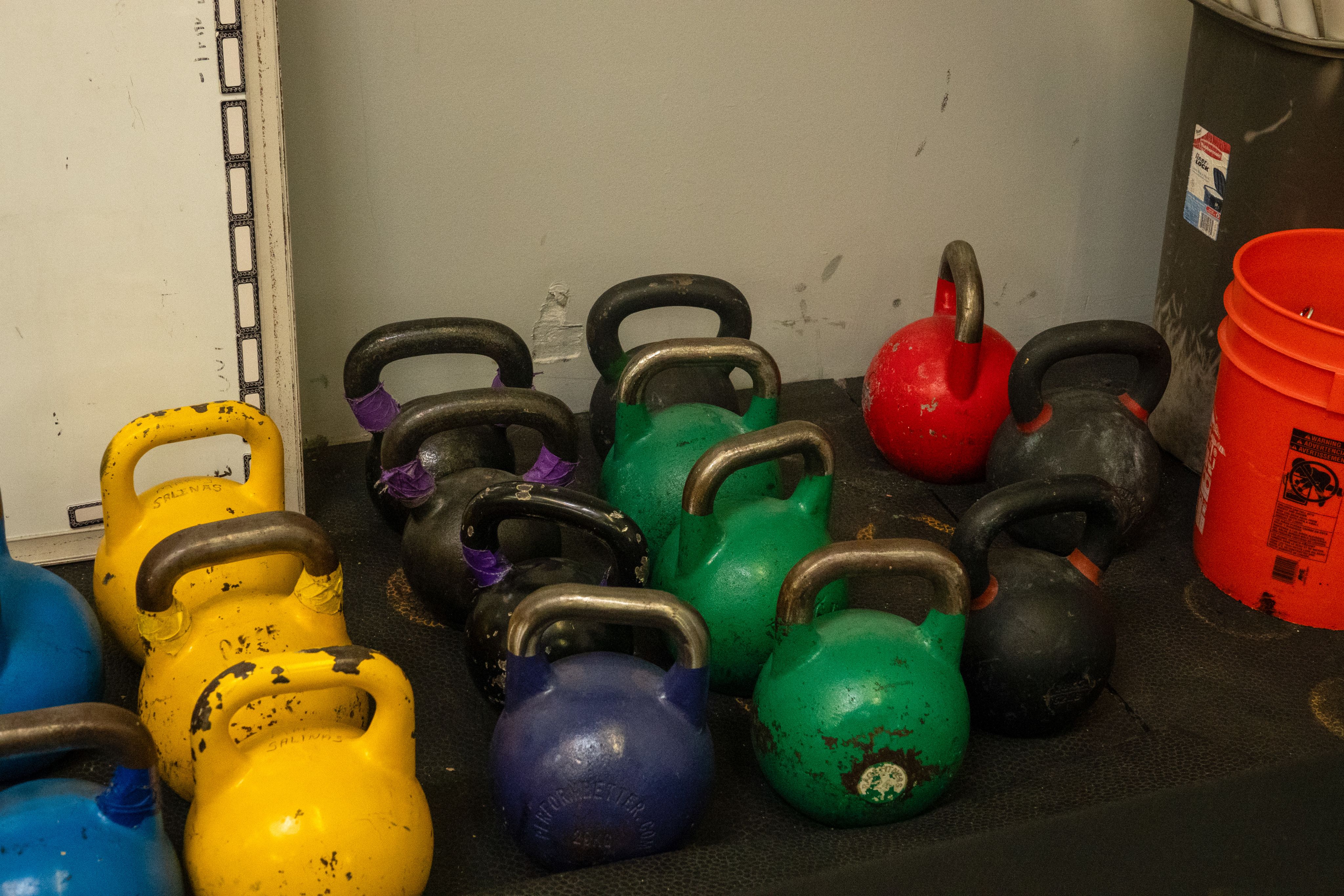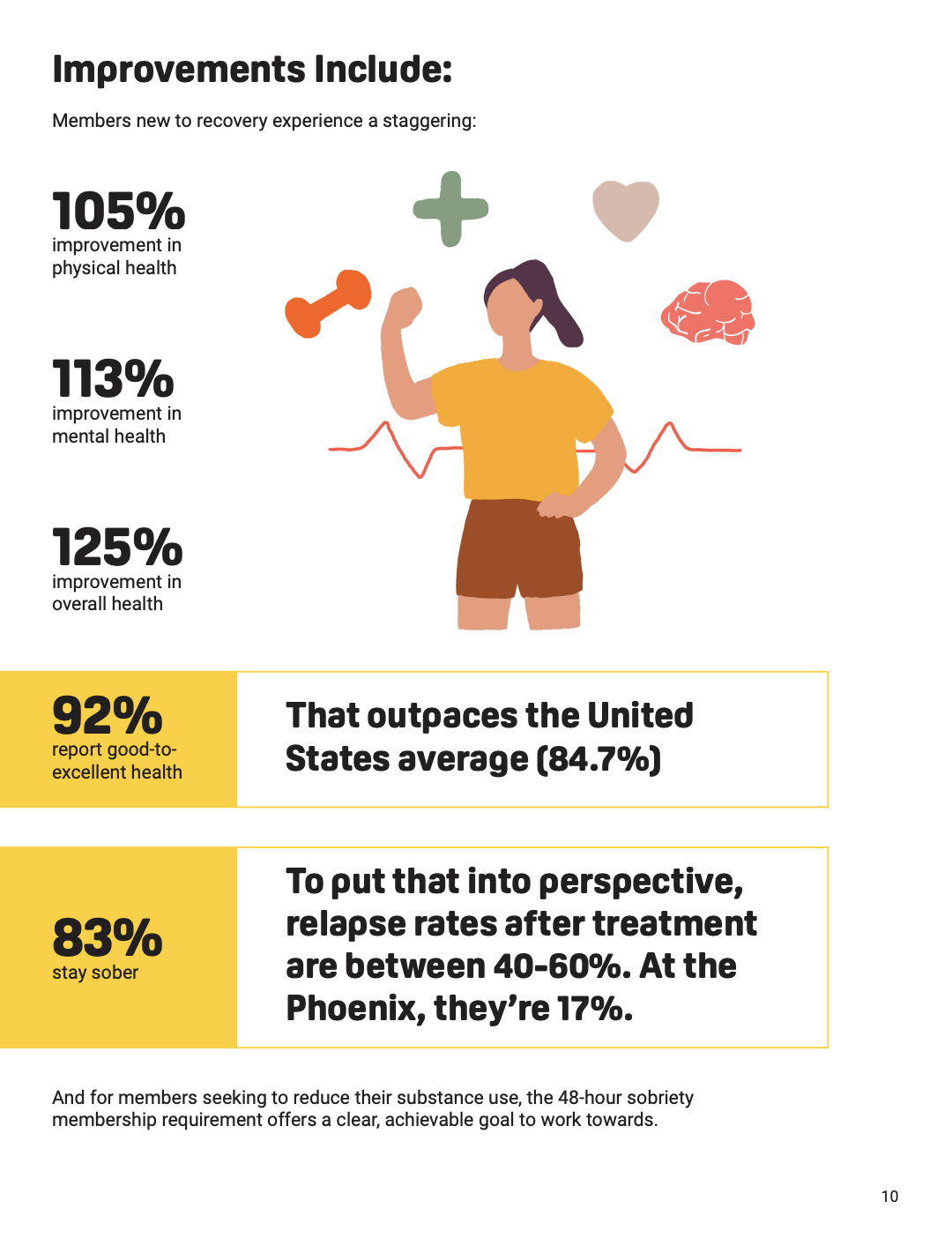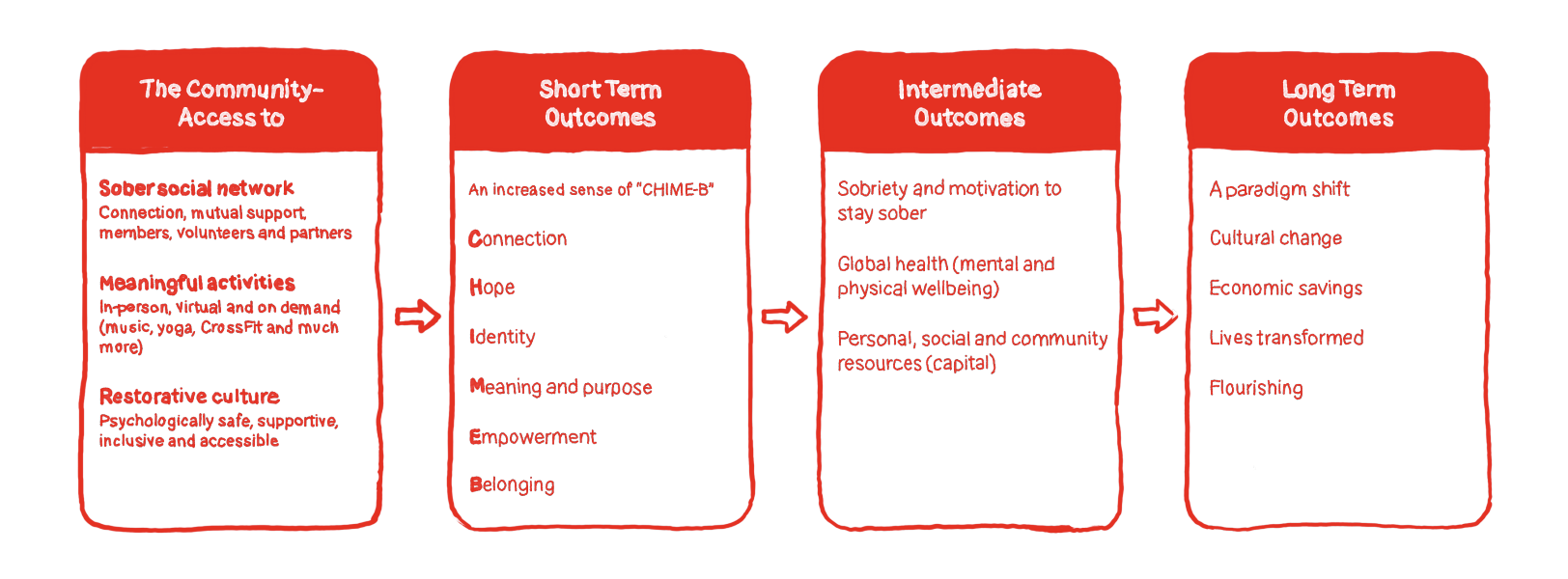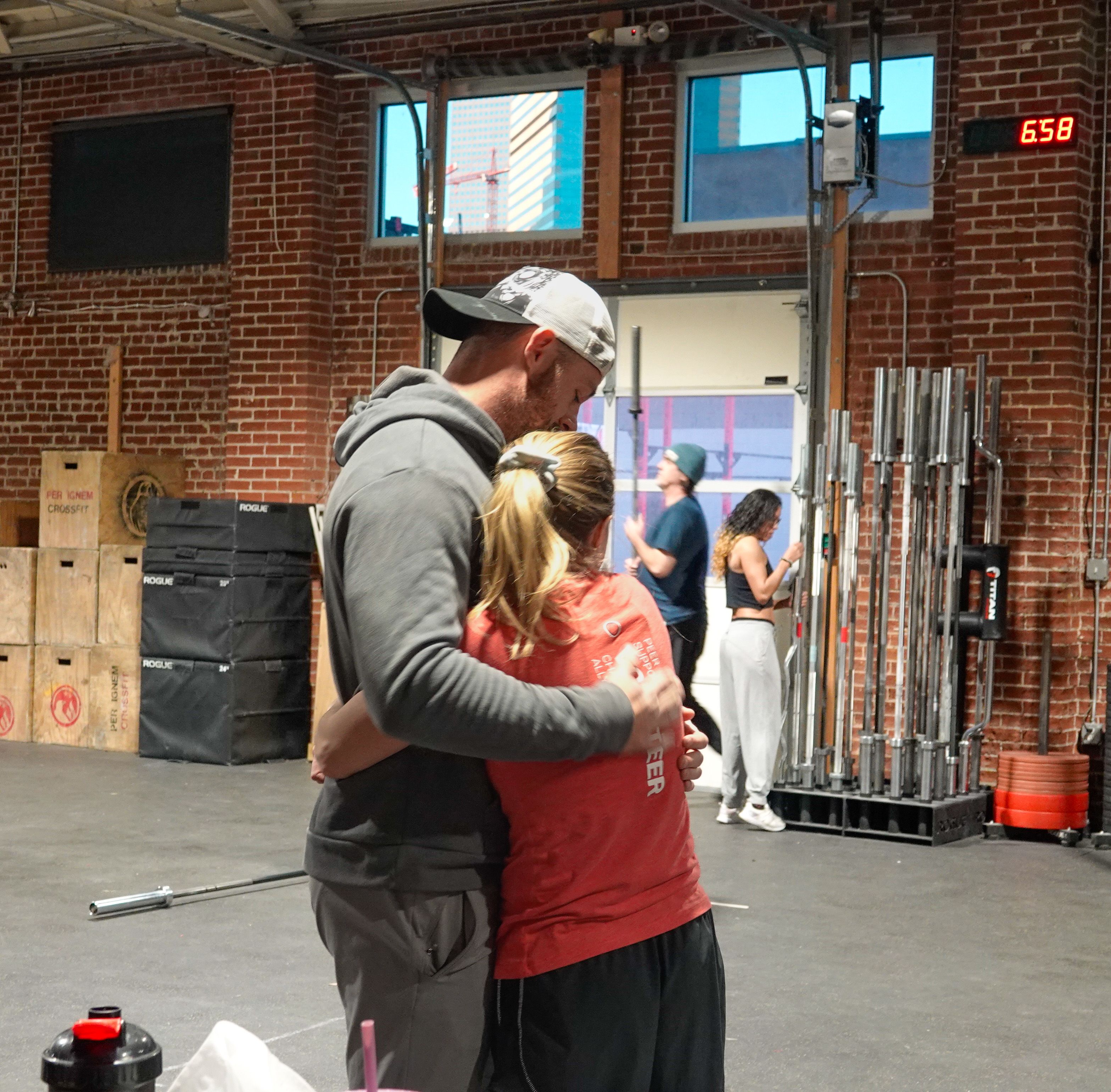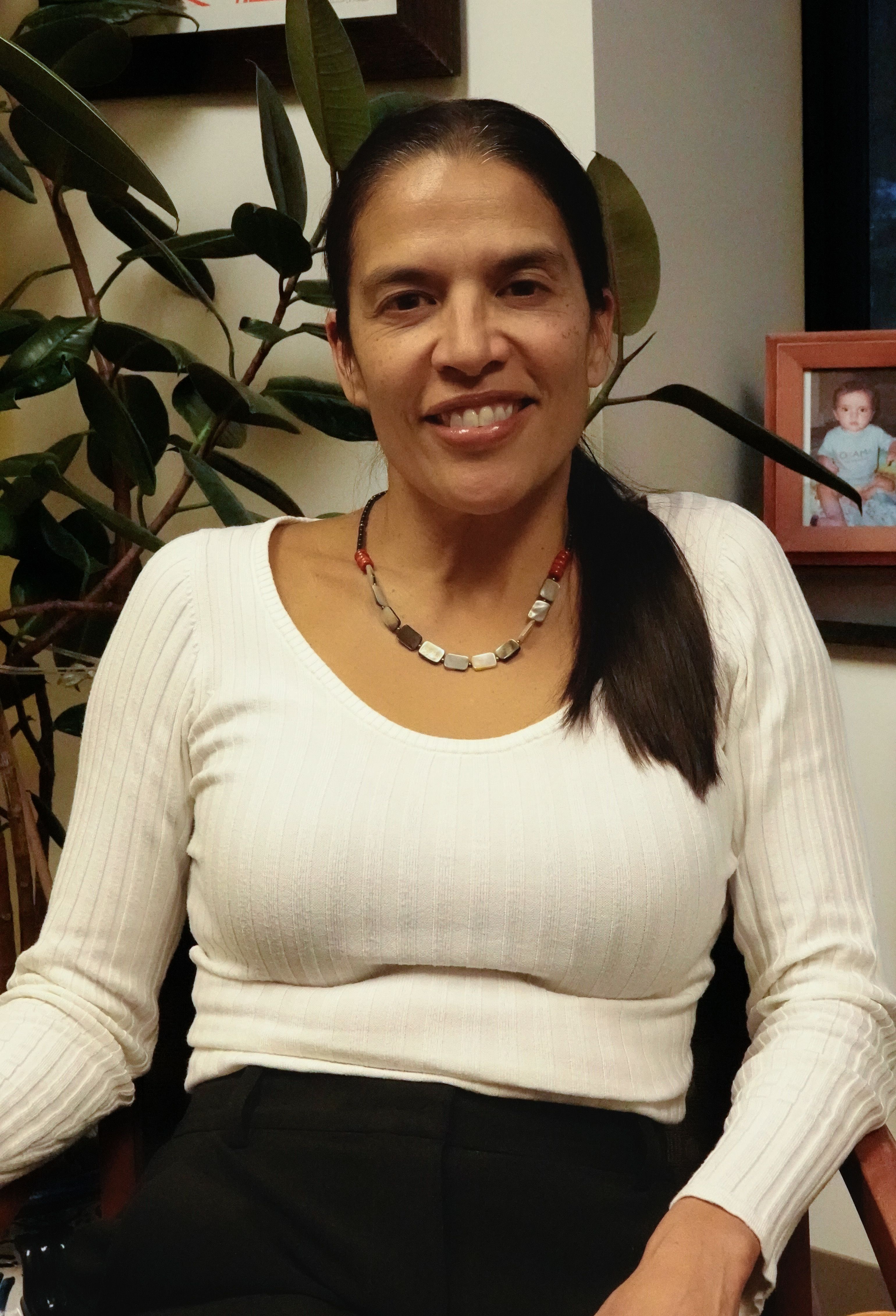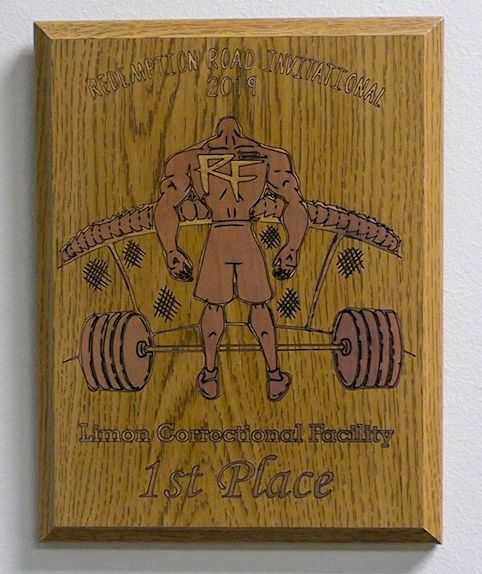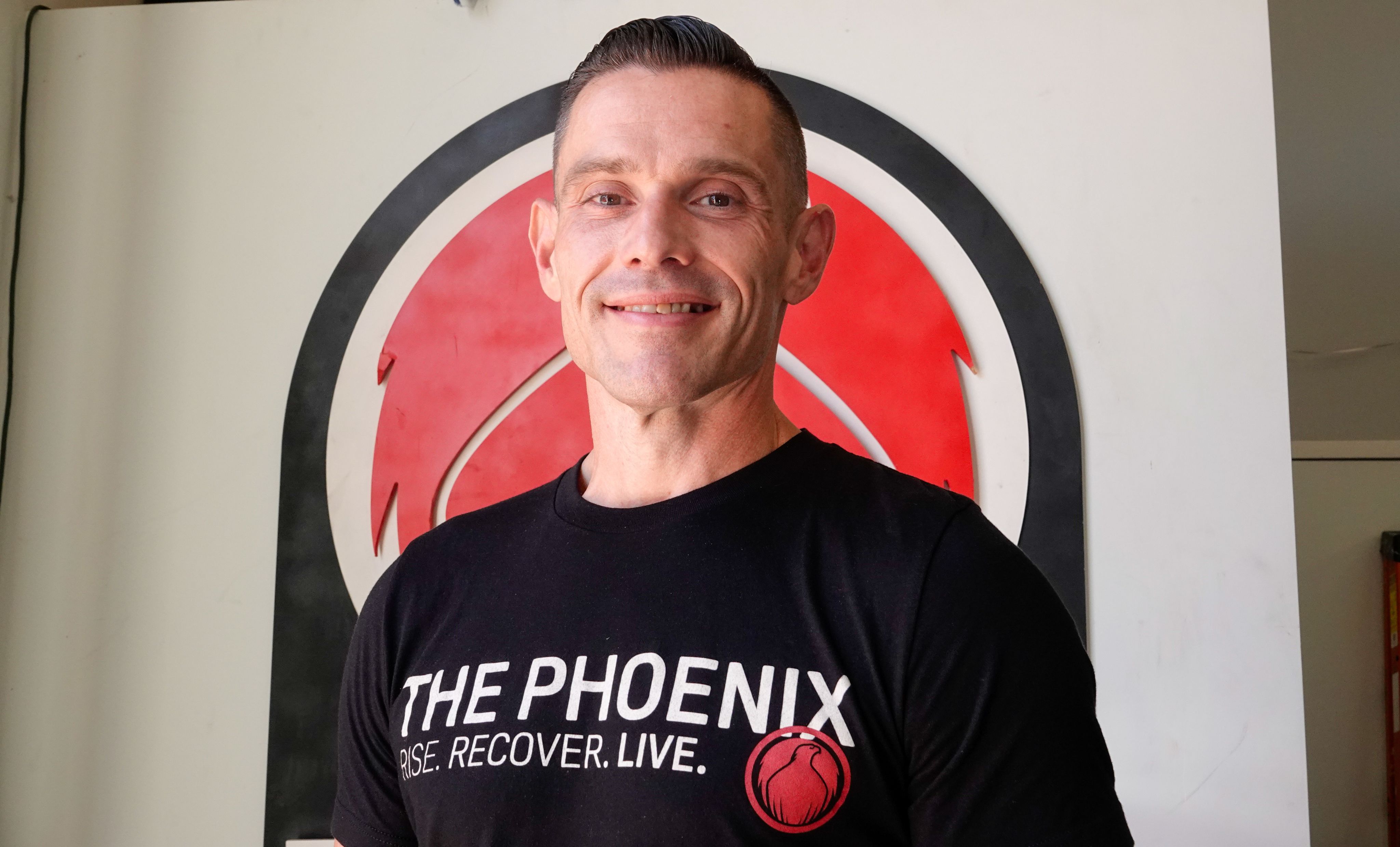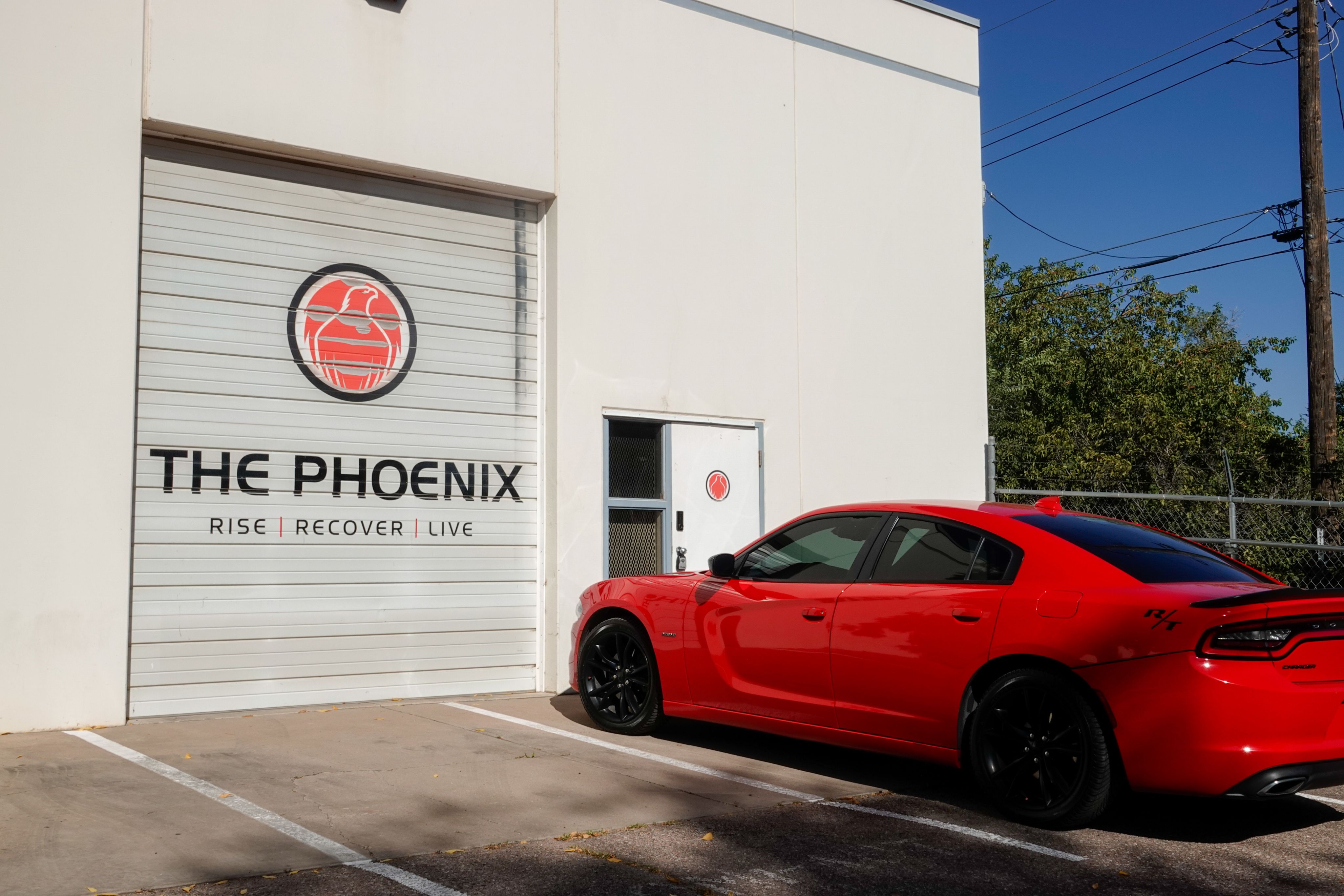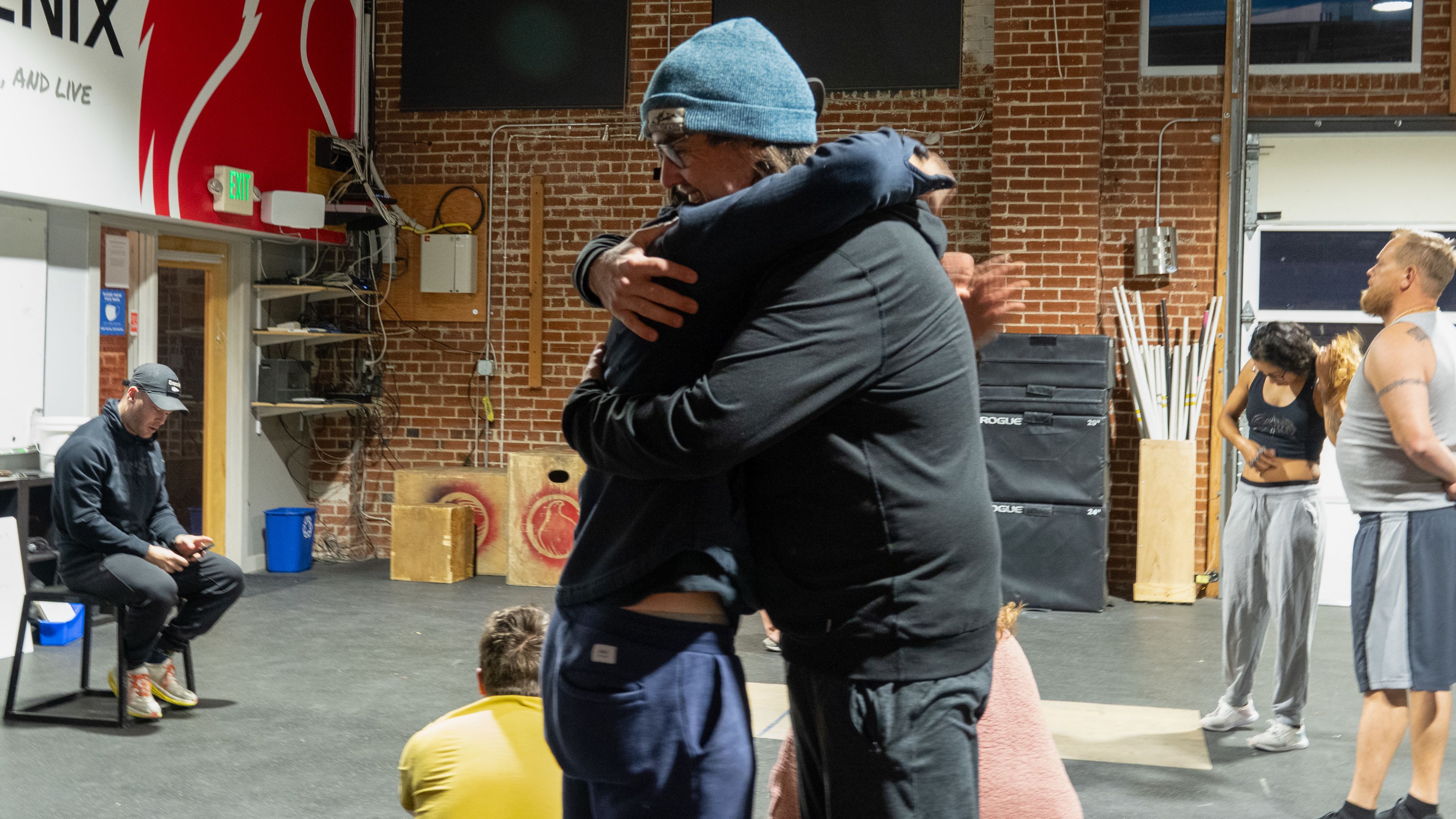The Rise of The Phoenix: A New Model for Fighting Addiction
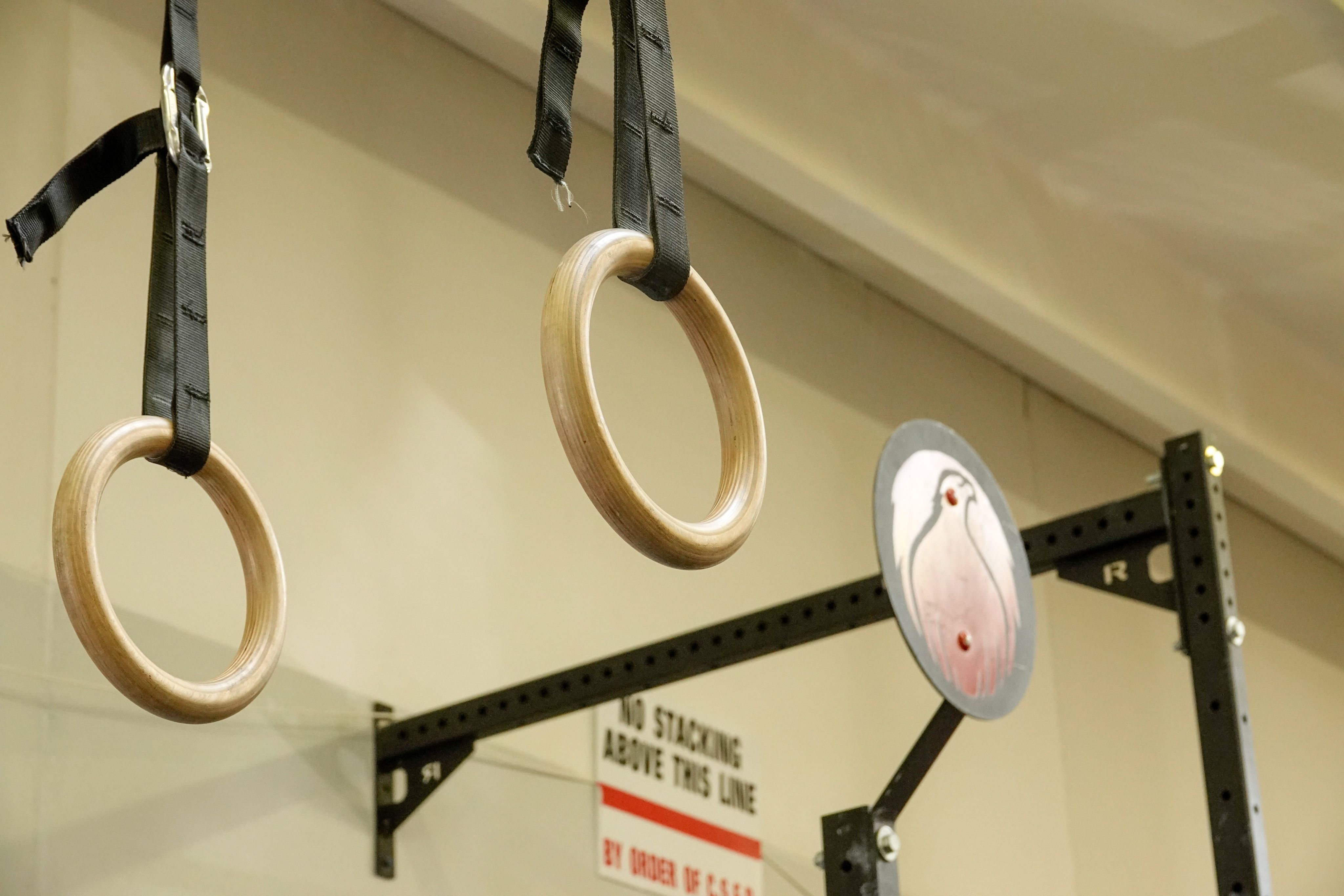
Video by Norah Hively, CU News Corps.
In 2008, a string of theft charges he’d incurred trying to support a drug addiction left Nick Wells looking at a 60-year prison sentence. Thoroughly demoralized to be facing so many years, when even murderers were getting far less time, he felt called to action.
Wells spent the next two years in jail fighting his case. During that time, he was coming off the drugs and replacing his cravings with food. At one point, Wells reached 400 pounds.
“I had replaced an addiction for an addiction,” he says.
So, Wells turned to exercise. Soon, he felt his eyes had been opened. Working out could not merely help him shed pounds, he believed, but finally, give him the tools he needed to break his addiction.
He started doing CrossFit with other inmates, trying to make life better inside prison. It was a way for inmates of all backgrounds to create a positive change in their lives.
Things changed when a friend of Wells was caught for using drugs, and his workout privileges were revoked. Upset, Wells and his workout friends sought another way and wrote to appeal to prison officials, arguing that people who are caught with drugs be sent to their CrossFit classes as an avenue to sobriety.
“I understand there’s repercussions for getting high, but you’re taking away the one avenue that is healthy to release this stress,” Wells tried to explain to them.
Reluctantly, the administration agreed, giving Wells and his friends six people to instruct for six weeks. Their program caught fire, and the heat of it inspired Wells to do even more. It turned into Redemption Road CrossFit, a nonprofit organization aimed to fight addiction and drug use in prisons through exercising CrossFit.
Several nights after the administration approved their initiative, Wells was watching the evening news in his prison dining hall when a man named Scott Strode appeared on the screen. Strode was talking about The Phoenix, a sober gym that organizes events and classes with the intent of creating a community on the rocky road to addiction recovery.
“They were doing exactly what we’re doing in here, out there,” says Wells. He decided to reach out to Strode and find out more.
The Phoenix: A Sober Active Community Model
Founded by Strode in 2006, the nonprofit strives through its events and classes to bring people struggling with addiction together to build back.
“We’re not just dealing with a substance use problem, we’re facing an epidemic rooted in social isolation,” the gym notes on its webpage. “The Phoenix model leverages the transformational power of connection and human resilience to build a sober movement.”
The very first thing that gets someone into their classes and events is 48 hours of sobriety before participating, along with a couple pages of paperwork.
CrossFit instructor, Ethan Widoff (left), observing class participants for proper form during class on Wednesday, Nov. 20, 2024, at The Phoenix-Denver. (Evanie Gamble, CU News Corps)
CrossFit instructor, Ethan Widoff (left), observing class participants for proper form during class on Wednesday, Nov. 20, 2024, at The Phoenix-Denver. (Evanie Gamble, CU News Corps)
The only other requirement is that those who attend events be respectful of others and their individual journeys. Once that criteria is met, The Phoenix is completely free and available to participate in.
Two years into The Phoenix's creation, Sean Cahill took up the challenge.
“I wanted something that was different than just meetings and so forth,” he said of his desire to find an alternative to typical 12-step programs. “I needed something that was going to kind of roll a little different.”
Sean Cahill smiles for a portrait from The Phoenix in Denver. Photo taken on Nov. 12, 2024. (Norah Hively, CU News Corps)
Sean Cahill smiles for a portrait from The Phoenix in Denver. Photo taken on Nov. 12, 2024. (Norah Hively, CU News Corps)
Early on, Cahill knew he was an addict. His addiction was mainly to alcohol, becoming addicted to cocaine later in life. In college, he’d been a Division 1 wrestler but dropped out of school because of his addiction. "Alcohol and drugs had taken that away from me," says Cahill.
Now, at 56, he manages member relations for The Phoenix, where he’s helped to build the offerings he craved. His participation started with a weekly walk around Wash Park. Then progressed to attending meetings for The Phoenix’s newly formed rock climbing program, which was held at a climbing gym in Thornton at the time.
The Phoenix events began in Boulder, meeting outdoors or in different exercise spaces by partnering with establishments around the area.
“It started as much more of a triathlon figurehead. There was mountain biking, some climbing, there was some running. But that was it,” Cahill explains.
That was 15 years ago. Now, the organization has multiple brick-and-mortar spaces, the first being a gym in Denver where Cahill works.
The Phoenix's first brick-and-mortar location stands in Denver, CO, on Nov. 12, 2024. (Norah Hively, CU News Corps)
The Phoenix's first brick-and-mortar location stands in Denver, CO, on Nov. 12, 2024. (Norah Hively, CU News Corps)
There are a few other physical locations across the United States, including Denver, Colorado Springs, Boston and Southern California. However, many of the events that The Phoenix organizes take place in spaces unrelated to the program, such as parks, climbing gyms or yoga studios.
A weight rack that is used by Phoenix members in Colorado Springs during the daily open gym period they offer. Photo taken on Oct. 16, 2024. (Norah Hively, CU News Corps)
A weight rack that is used by Phoenix members in Colorado Springs during the daily open gym period they offer. Photo taken on Oct. 16, 2024. (Norah Hively, CU News Corps)
The biggest thing that The Phoenix emphasizes about their outlook on the journey is that they seek to be open to all pathways to recovery. They encourage anything that works, compared to groups like Alcoholics Anonymous (AA) or Narcotics Anonymous (NA) that may not support things like methadone or using marijuana when you are recovering from an alcohol or hard drug addiction.
Widoff teaching his Wednesday CrossFit class on Nov. 20, 2024, at The Phoenix-Denver. (Evanie Gamble, CU News Corps)
Widoff teaching his Wednesday CrossFit class on Nov. 20, 2024, at The Phoenix-Denver. (Evanie Gamble, CU News Corps)
Regional manager for The Phoenix, Rob Baumgartner, was another member looking for more than just a 12-step program. After getting into a rollover accident and scraping by with only minor injuries, Baumgartner decided to finally get sober. He started attending meetings the very next day. But, there was one hang up.
“It [12-step meetings] didn't really resonate for me. You know, it works for millions of people, but there were components of it that I just found challenging,” Baumgartner says. His father’s girlfriend sent him an article about The Phoenix, a very new organization at the time. “I had been pretty active when I was using and I was like: ‘This sounds perfect for me,’” he says.
A sign posted outside The Phoenix shows the Denver community they offer CrossFit classes. Photo taken on Nov. 12, 2024. (Norah Hively, CU News Corps)
A sign posted outside The Phoenix shows the Denver community they offer CrossFit classes. Photo taken on Nov. 12, 2024. (Norah Hively, CU News Corps)
For many of the members, it wasn’t just the activities that drew them in, it was also the community of people they were introduced to. “We're just sort of about treating people with respect and rising together. And we had different ways of framing those things, but the same ideas are still around as what we now call our ethos. And I just found a new community,” Baumgartner explains.
Their ethos, which are recited at the beginning of each of their events, involves four key qualities: they honor sobriety and recovery, they welcome all, they strive to create a safe and inclusive place, and they rise together.
Phoenix members chatting before CrossFit class in Denver on Wednesday, Nov. 20, 2024. (Evanie Gamble, CU News Corps)
Phoenix members chatting before CrossFit class in Denver on Wednesday, Nov. 20, 2024. (Evanie Gamble, CU News Corps)
Mika Mumme, 32, was another member who struggled with an alcohol addiction. She explains how it began in high school and followed her into her adult years. "I say that I got through college by the skin of my teeth," says Mumme. "That, for me, was when it was very present."
Mumme joined The Phoenix in 2019. She started as a member, then became a volunteer and eventually associate regional manager in the Colorado area, where she has remained for the past three years.
Having been an athlete all her life, Mumme immediately fell in love with this form of recovery. "I think my idea of recovery was that it was going to be isolating," she says. "That is a mental model that has changed for me since coming to The Phoenix."
Mika Mumme posing for a portrait on Nov. 12, 2024, from the Denver Phoenix after describing what the organization means to her. (Norah Hively, CU News Corps)
Mika Mumme posing for a portrait on Nov. 12, 2024, from the Denver Phoenix after describing what the organization means to her. (Norah Hively, CU News Corps)
One of Mumme's favorite things that The Phoenix does is their annual trip to Moab, UT. She has been three times and was given the opportunity to project manage this year's trip.
The Moab trip lasts four days and three nights. About 250 people typically attend. Mumme says it is impactful to see individuals who come to Moab as their first Phoenix event.
"They get to talk about gratitude around a fire. They get to push themselves, maybe physically, like repelling off of a cliff and finding trust in another individual," she says. "To me, that is a short amount of time to form a deeper connection."
The most important part of the trip to Mumme is the gratitude circle. Two years ago, that is where she shared how she was thankful for the supportive Phoenix community. During this time, it allowed her to process a recent loss in her life. She says, "two weeks before we left for Moab, I'm going to try not to cry because it makes me emotional, but a good friend of mine passed from substance use.”
The Phoenix offered her a community where she felt like she didn’t have to put up a front. Mumme describes seeing that wall come down for other Phoenix members in Moab, and how this is so important to what the organization is all about. "You get to see people have that support and what we call their 'Phoenix moment' on such an emotional, vulnerable scale when we're there," says Mumme.
Funding & Research
Many people are trying to expand this welcoming community. These are the people who help fund The Phoenix.
Deputy Executive Director for The Phoenix, Dr. Jacki Hillios, helped Strode in the creation of the organization. She explains that the majority of their funding comes from individual donors and foundations, as well as a small amount of government grants. Most of their major fundraising is highly relational.
“I think a lot of our folks either have been impacted directly because of their own substance use or alcoholism, or through family members,” Hellios says.
Widoff (left) instructs his fellow Phoenix member and wife, Liz (right), at a morning CrossFit class on Wednesday, Nov. 20, 2024, at The Phoenix-Denver. (Evanie Gamble, CU News Corps)
Widoff (left) instructs his fellow Phoenix member and wife, Liz (right), at a morning CrossFit class on Wednesday, Nov. 20, 2024, at The Phoenix-Denver. (Evanie Gamble, CU News Corps)
Many donors are also looking to expand The Phoenix’s healthy mindset to their own communities, especially those that have struggled, or know someone who has struggled, with addiction. “We want to empower our donors to align their resources in ways that are impactful for them,” Hillios says. This same philosophy goes for foundations that fund their operation.
Kettlebells that are used for CrossFit classes at The Phoenix in Colorado Springs. Photo taken on October 16, 2024. (Norah Hively, CU News Corps)
Kettlebells that are used for CrossFit classes at The Phoenix in Colorado Springs. Photo taken on October 16, 2024. (Norah Hively, CU News Corps)
Alongside funding, The Phoenix also does their own research to examine the positive impacts they have had on their members. Dr. Katie Heinrich, The Phoenix’s senior researcher, left teaching Kinesiology at Kansas State to research a logic model that focuses on how The Phoenix helps people who continue to attend events within the community.
The research team has found that around 83% of members stay sober, compared to the typical 40%-60% with other treatment programs.
However, Heinrich says that sobriety is just a piece of the puzzle in terms of the general well-being of their members. Their research results show that their members end up above national averages in terms of overall health within their first three months of involvement with The Phoenix.
Page 10 of research findings on The Phoenix's website titled: "The Transformative Power of a Sober Active Community: An Accessible Approach to Healing" (2024). Presents how, in the first few months of joining, members statistically show health improvement.
Page 10 of research findings on The Phoenix's website titled: "The Transformative Power of a Sober Active Community: An Accessible Approach to Healing" (2024). Presents how, in the first few months of joining, members statistically show health improvement.
Heinrich mentions the long-term idea of "flourishing," explaining that it continues to increase at a greater rate than other treatment programs. “Flourishing looks at multiple domains of your life: social, emotional, financial resources and things like that,” says Heinrich. “Data we collected last year showed that, not only do Phoenix members flourish in their first year, it really continues going.”
The Phoenix logic model provided by the organization's website. Shows how "CHIME-B" provides long-term outcomes. (2024)
The Phoenix logic model provided by the organization's website. Shows how "CHIME-B" provides long-term outcomes. (2024)
Research shows that a sense of community is what keeps Phoenix members involved.
Phoenix members hugging between workout sets during their early morning CrossFit class. Photo taken on Nov. 20, 2024, at The Phoenix-Denver. (Evanie Gamble, CU News Corps)
Phoenix members hugging between workout sets during their early morning CrossFit class. Photo taken on Nov. 20, 2024, at The Phoenix-Denver. (Evanie Gamble, CU News Corps)
The Bigger Picture
Reaching as many people as possible to become a part of it is the goal. The majority of The Phoenix’s outreach doesn’t come from in-person events, it comes from their mobile app. “Anything you can think of, our volunteers have potentially run a session for that,” says Heinrich. From virtual CrossFit classes to meditation sessions to book clubs, there is a group on the app where anyone with any interest can feel welcome.
The Phoenix also creates virtual classes for prisons with the help of some of their members, including Mumme. They do this by partnering with another nonprofit called Edovo which aims to bring technology into prisons for multiple purposes. The Phoenix creates classes for Edovo, allowing inmates to view classes on tablets and conduct workouts from their cells. Wells, who is now a free man, joins Mumme in the creation of these classes.
After reaching out to The Phoenix, Wells began volunteering for the organization from behind bars. Through his involvement with The Phoenix and Redemption Road CrossFit, Wells was able to accomplish a lot during his time served.
“We had Crossfit come in and they did their first ever Level-One Certification inside prison,” says Wells. “Now, we’re doing them all the time.”
Redemption Road CrossFit held the first-ever CrossFit competition at Limon Correctional Facility in Limon, CO, where civilians came into the prisons to compete with inmates. Wells was paired up with Violeta Chapin, 49, an attorney and clinical professor of law at the University of Colorado Boulder.
“What I learned from Nick, is that he was serving what amounted to a life sentence for non-violent property offenses,” says Chapin.
Learning this information was shocking to Chapin. She quickly found out that Wells was convicted as a result of Colorado’s habitual offender statute, the state's version of the three-strikes law. “In Colorado, the prosecutor, if they want, can choose to charge you as the habitual offender if you have a certain number of prior felony convictions for the same kind of offense,” Chapin explains. “If you’re convicted, the judge in your case, doesn't have to, but can, sentence you to life in prison.”
On Nov. 7, 2024, Violeta Chapin smiles from her office at Wolf Law School at the University of Colorado Boulder where she meets with her students to discuss cases typically focused on public defense and immigration law. (Norah Hively, CU News Corps)
On Nov. 7, 2024, Violeta Chapin smiles from her office at Wolf Law School at the University of Colorado Boulder where she meets with her students to discuss cases typically focused on public defense and immigration law. (Norah Hively, CU News Corps)
This sentence was extraordinary to Chapin. Despite Wells stealing a lot of things from a lot of people, a life sentence seemed disproportionate and unfair. “It’s also a waste, a tremendous waste of tax payer resources, in the state of Colorado to be paying essentially hundreds or thousands of dollars to keep someone like Nick in prison,” Chapin says disappointedly.
The Redemption Road CrossFit Trophy won by Chapin and Wells at a competition inside Limon Correctional Facility in Limon, CO, hangs in Chapin's office on Nov. 7, 2024. (Norah Hively, CU News Corps)
The Redemption Road CrossFit Trophy won by Chapin and Wells at a competition inside Limon Correctional Facility in Limon, CO, hangs in Chapin's office on Nov. 7, 2024. (Norah Hively, CU News Corps)
Chapin was inspired by Wells’ story of becoming a CrossFit athlete and coach in prison. She was amazed by the positive, friendly attitude that he had maintained during his rehabilitation.
“[Chapin] called up to the facility and said she had it on her heart to get me out,” says Wells.
Chapin and three of her students built a case for Wells, asking the Governor of Colorado, Jared Polis, to let him out of prison.
Wells was granted clemency on Dec. 30, 2021.
On May 10, 2022, Wells walked out of prison after only serving 14 of his original 60 years.
On Oct. 16, 2024, Nick Wells poses for a portrait at the Colorado Springs Phoenix location which he considers his second home. (Norah Hively, CU News Corps)
On Oct. 16, 2024, Nick Wells poses for a portrait at the Colorado Springs Phoenix location which he considers his second home. (Norah Hively, CU News Corps)
“My first stop was this building,” Wells says from the location in Colorado Springs. “I came right here to workout at The Phoenix.”
Wells' car, which he plans to add a Phoenix logo to, is parked outside The Phoenix in Colorado Springs. Photo taken on Oct. 16, 2024. (Norah Hively, CU News Corps)
Wells' car, which he plans to add a Phoenix logo to, is parked outside The Phoenix in Colorado Springs. Photo taken on Oct. 16, 2024. (Norah Hively, CU News Corps)
Wells started working with The Phoenix by creating a series of workout videos for prison systems with Mumme.
Mumme says inmates get to bring The Phoenix experience and community-building aspect to their cells. This is done through a series of challenges, for example, to go find a partner to make a connection outside of the workout. It’s like coursework where you have to complete a course before moving on to the next. They even get homework assignments and are able to leave feedback about the classes.
“To hear that they’re doing it and creating impact and spreading this movement of sobriety and internal strength in the prison system is really cool to see,” says Mumme.
Wells is now the volunteer coordinator for The Phoenix and manager of their Colorado Springs gym. He works for another nearby gym called CrossFit Decimate on top of that, teaching classes and coaching adaptive athletes. He is also now the official president of Redemption Road CrossFit.
Wells guest-starring on the podcast "Best Hour of Their Day." Talking with his past fellow inmates, they discuss how CrossFit changed their lives both inside and outside prison. Podcast posted on Oct. 16, 2024.
Wells recently became a member of the board for The Alternate Defense Council (ADC) in Colorado which is the conflict council for the public defender. He joined after Chapin, who was already a member, proposed he join as a past client who had a negative experience with an ADC lawyer who was on his case in 2008.
"I can't believe we didn't have an impacted client before," says Chapin. "It has been extraordinary to have him participate and talk about criminal defense from his perspective."
Chapin and Wells keep in contact outside a professional setting. "We still get together for workouts," says Chapin. "He'll come up to Boulder and I've gone to Colorado Springs to do that." Wells has even met Chapin's family and often stays at their guest house for the weekend.
“The community that I’ve met through this became my community,” says Wells. “Seeing people from all walks of life makes me really reflect on where I was on my journey.” He describes how help from The Phoenix, and people like Chapin, kept him sober after being released. He considers the community he has met through CrossFit his family.
Phoenix members hugging before their morning CrossFit class on Wednesday, Nov. 20, 2024, at The Phoenix-Denver. (Evanie Gamble, CU News Corps)
Phoenix members hugging before their morning CrossFit class on Wednesday, Nov. 20, 2024, at The Phoenix-Denver. (Evanie Gamble, CU News Corps)
The Phoenix has now served over 500,000 members. Whether these members are recovering addicts looking for something more than a 12-step program or an ally in the sober community, The Phoenix offers a safe space to not only be active but find a community of people who understand one another. Members like Wells continue to share the message of The Phoenix to people of all different backgrounds, including those in prison.
“Whether it’s their first time or their hundredth time, [members] are around people who have the same exact mindset that they want to be in,” says Wells. “We have all different stages of recovery, there are people that are 48 hours clean to 16 years clean. And this place serves as a family and a home where people can come and feel safe.”

